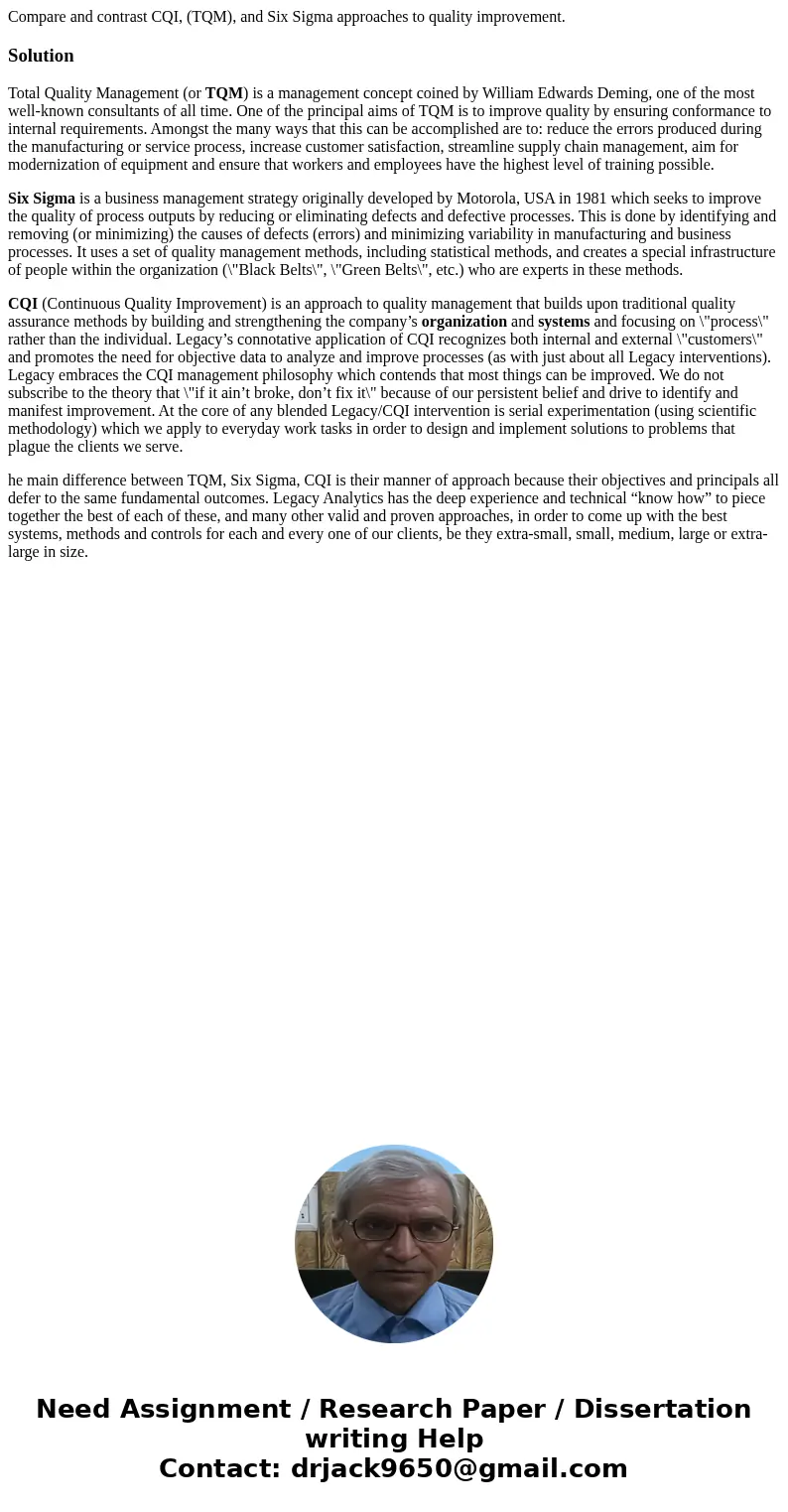Compare and contrast CQI TQM and Six Sigma approaches to qua
Compare and contrast CQI, (TQM), and Six Sigma approaches to quality improvement.
Solution
Total Quality Management (or TQM) is a management concept coined by William Edwards Deming, one of the most well-known consultants of all time. One of the principal aims of TQM is to improve quality by ensuring conformance to internal requirements. Amongst the many ways that this can be accomplished are to: reduce the errors produced during the manufacturing or service process, increase customer satisfaction, streamline supply chain management, aim for modernization of equipment and ensure that workers and employees have the highest level of training possible.
Six Sigma is a business management strategy originally developed by Motorola, USA in 1981 which seeks to improve the quality of process outputs by reducing or eliminating defects and defective processes. This is done by identifying and removing (or minimizing) the causes of defects (errors) and minimizing variability in manufacturing and business processes. It uses a set of quality management methods, including statistical methods, and creates a special infrastructure of people within the organization (\"Black Belts\", \"Green Belts\", etc.) who are experts in these methods.
CQI (Continuous Quality Improvement) is an approach to quality management that builds upon traditional quality assurance methods by building and strengthening the company’s organization and systems and focusing on \"process\" rather than the individual. Legacy’s connotative application of CQI recognizes both internal and external \"customers\" and promotes the need for objective data to analyze and improve processes (as with just about all Legacy interventions). Legacy embraces the CQI management philosophy which contends that most things can be improved. We do not subscribe to the theory that \"if it ain’t broke, don’t fix it\" because of our persistent belief and drive to identify and manifest improvement. At the core of any blended Legacy/CQI intervention is serial experimentation (using scientific methodology) which we apply to everyday work tasks in order to design and implement solutions to problems that plague the clients we serve.
he main difference between TQM, Six Sigma, CQI is their manner of approach because their objectives and principals all defer to the same fundamental outcomes. Legacy Analytics has the deep experience and technical “know how” to piece together the best of each of these, and many other valid and proven approaches, in order to come up with the best systems, methods and controls for each and every one of our clients, be they extra-small, small, medium, large or extra-large in size.

 Homework Sourse
Homework Sourse